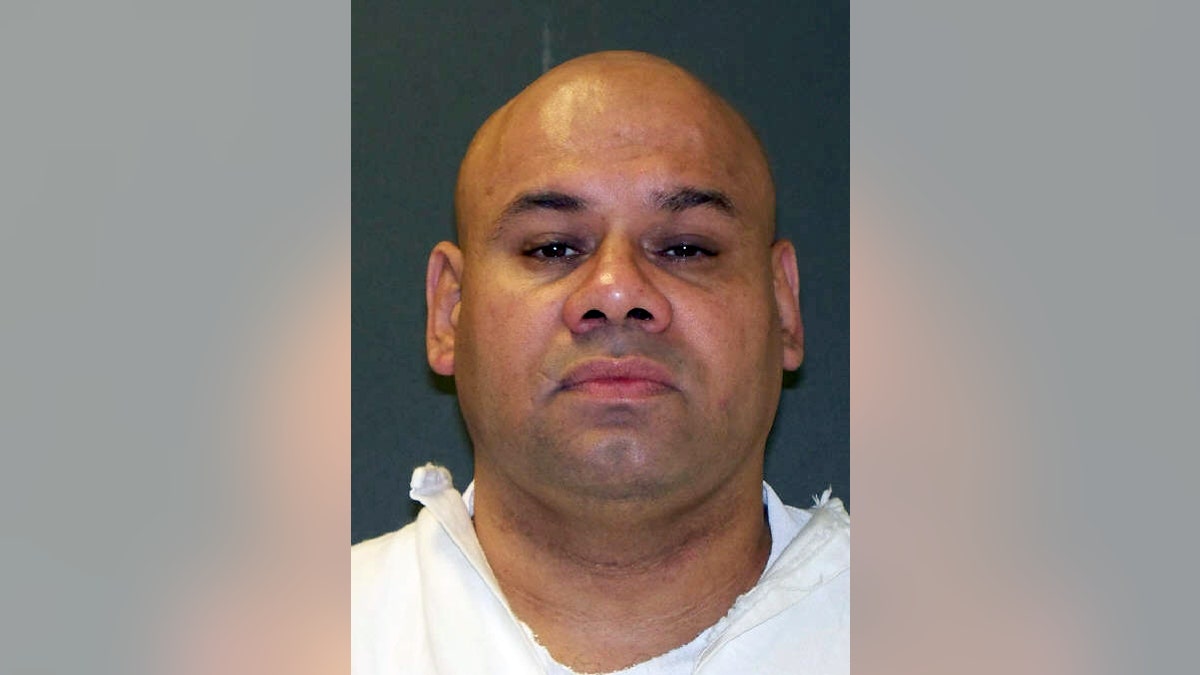
This undated handout photo provided by the Texas Department of Criminal Justice shows Manuel Vasquez. He is scheduled for execution Wednesday, March 11, 2015 for the ordered murder of a San Antonio woman who ignored a 10 percent street tax on drugs _ known as a “dime.” (AP Photo/Texas Department of Criminal Justice) (The Associated Press)
HUNTSVILLE, Texas – A gang enforcer convicted of beating and strangling a San Antonio woman who refused to pay a Mexican Mafia-imposed tax on her illegal drug sales is set to be executed this week.
The lethal injection of Manuel Vasquez on Wednesday evening would leave prison officials in the nation's most active death penalty state with enough pentobarbital to carry out only one more execution until they are able to obtain a new supply. At least six executions are scheduled in the coming weeks in Texas, where prison officials — like in other death penalty states — have struggled to find providers for drugs for executions.
Vasquez, 46, had no appeals in the courts Tuesday and the Texas Board of Pardons and Paroles rejected a clemency petition filed on his behalf in a 7-0 vote.
Evidence at Vasquez's 1999 capital murder trial showed he and two other men were carrying out orders to kill 51-year-old Juanita Ybarra for ignoring the Mexican Mafia's 10 percent street tax on drugs — known as a "dime."
After a night of drinking and drugs at a run-down San Antonio motel, Vasquez and two companions barged into the nearby room of Ybarra and her boyfriend, Moses Bazan, early on March 19, 1998, according to evidence presented at his trial. Bazan was knocked out in an ensuing struggle but said he saw Ybarra being beaten, heard Vasquez holler that she was biting him and saw Vasquez using a telephone cord to strangle Ybarra. The attackers grabbed valuables like cameras and jewelry, stuffed them into a pillowcase and fled.
When Bazan regained consciousness, he stumbled to the motel office to summon police. He was able to identify at least one of the attackers, leading to the arrest of all three.
One of them, Johnny Joe Cruz, took a plea deal that carried a seven-year sentence and testified against Vasquez. The third man charged, Oligario Lujan, is serving a 35-year prison term.
Court records show the three were carrying out orders from Mexican Mafia boss Rene Munoz, who spent years on the Texas Department of Public Safety's 10 Most Wanted List until his arrest in 2012.
Joel Perez, Vasquez's lead trial lawyer, recalled last week that the motive for the slaying was "very detrimental."
"We have the Texas Mexican Mafia, and anyone selling drugs they collect a dime — 10 percent," he said. "And the motive in this case was she wasn't paying."
Detectives also found the blood of the victims and Vasquez's blood on clothing left in the trunk of a car he used.
"It put him at the scene when he denied being around there," Mary Green, an assistant Bexar County district attorney who prosecuted Vasquez, said. "I recall he was an extremely violent individual. In the punishment phase we proved up two other homicides he'd been involved with."
Vasquez had a lengthy record and had been in and out of prison at least twice. One conviction involved the beating of a man who died after his body was set on fire. Records also show Vasquez' father is serving a life sentence for a 1976 murder, and a brother and cousins are or have been in prison.

